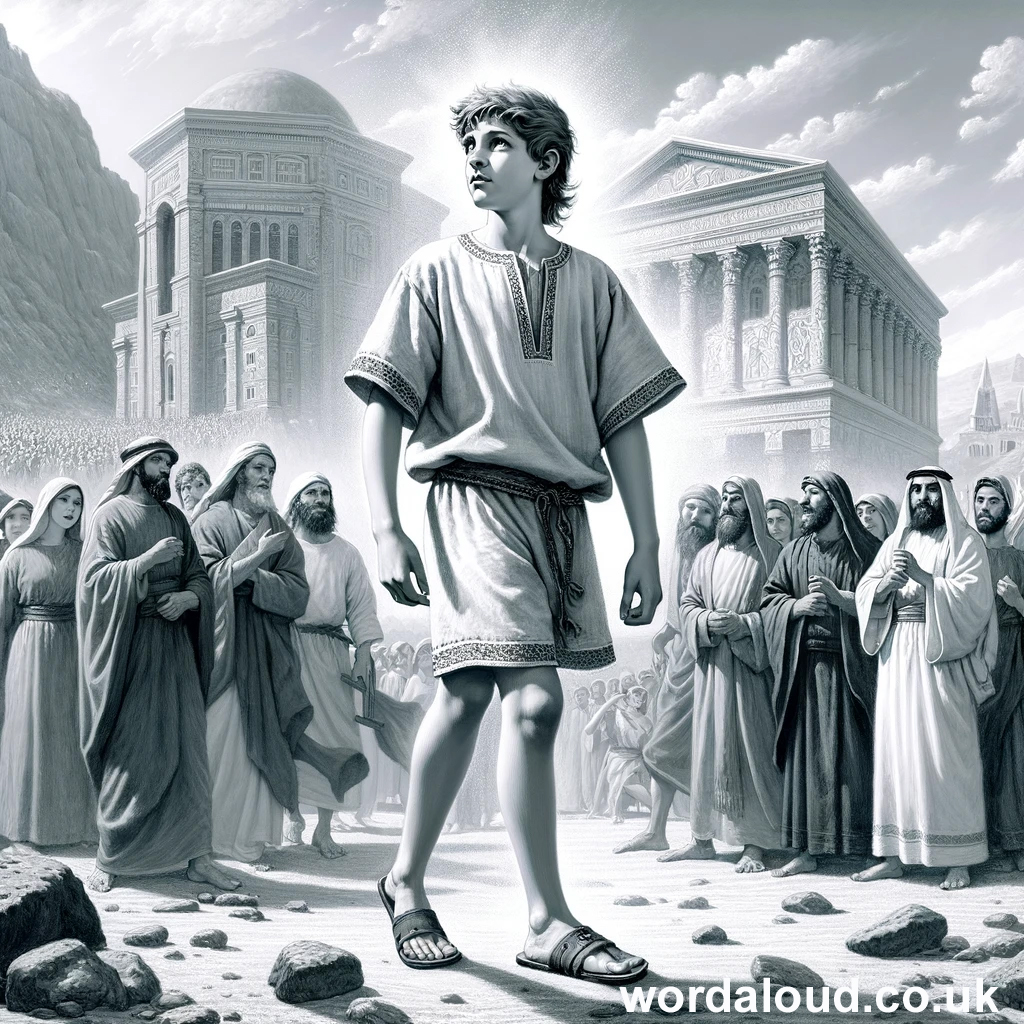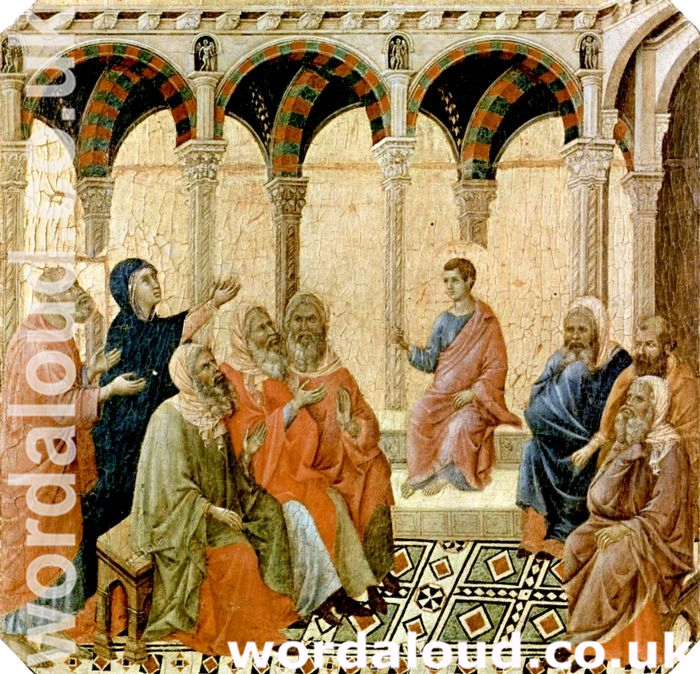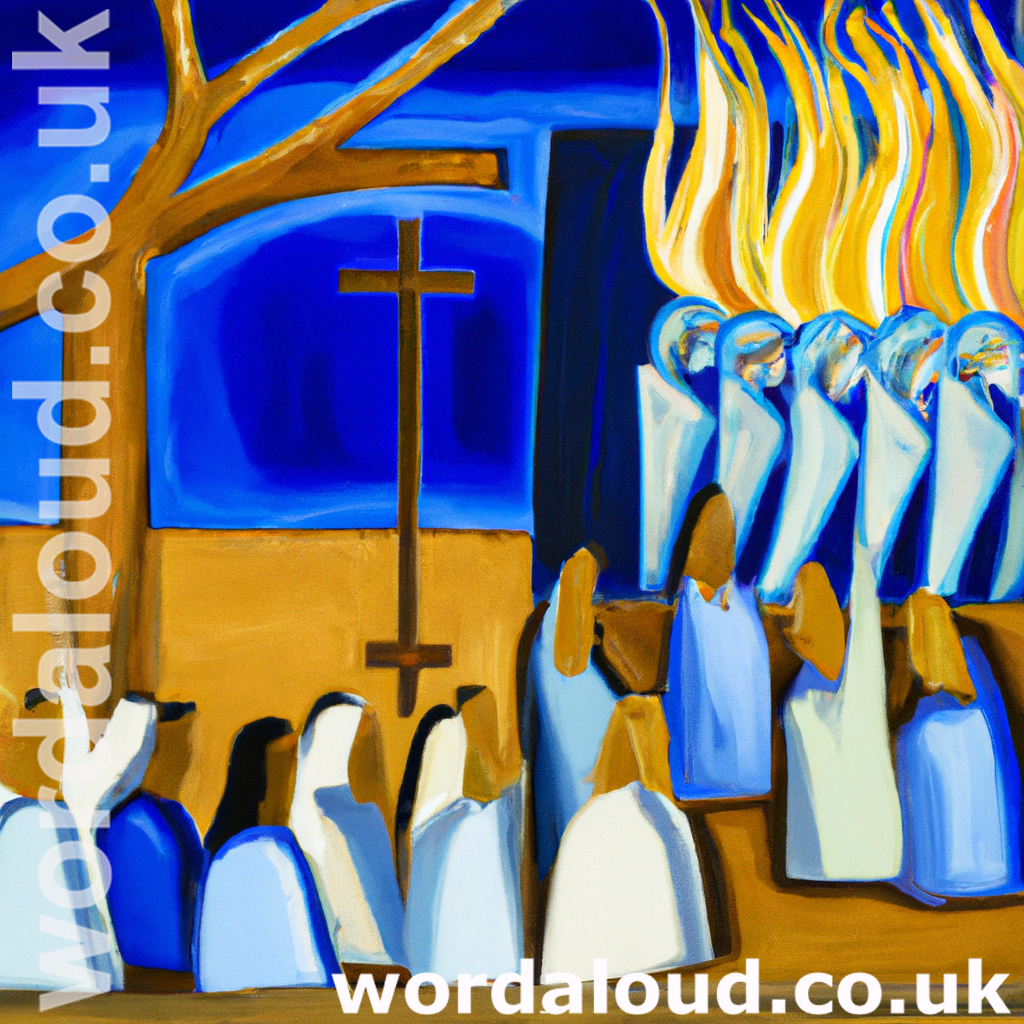Christian Art | Prayer With Jesus | Psalms | Blessedness Of Unity | King David As A Boy | Audio KJV | Love Revealed By Jesus Christ | King James Audio Bible
Psalm 133 | King James Audio Bible
YouTube: Psalm 133 | KJV | King James Version | Audio Bible | Word Aloud
The psalm begins with a declaration, ‘Behold, how good and how pleasant it is for brethren to dwell together in unity!’ This opening line serves as a thesis statement, asserting the intrinsic value and pleasantness of communal harmony. The emphasis here is on the collective experience of togetherness, highlighting the inherent goodness found in unity among God’s people.
In the second verse, the psalmist employs a vivid analogy: ‘It is like the precious ointment upon the head, that ran down upon the beard, even Aaron’s beard: that went down to the skirts of his garments.’ The reference to the anointing oil on Aaron, the first high priest of Israel, is loaded with connotations of consecration and sacred service. In the ancient Israelite context, anointing with oil was a ritual signifying divine selection and blessing. The oil, often infused with expensive spices, was a symbol of sanctity and set-apartness for a holy purpose. The imagery of the oil flowing down Aaron’s beard to the skirts of his garments symbolizes the overflowing of blessing and sanctification from the head (leadership) to the entire community.
The third verse shifts the metaphorical landscape: ‘As the dew of Hermon, and as the dew that descended upon the mountains of Zion.’ Mount Hermon, known for its lofty heights and abundant dew, stands as a symbol of refreshment and fertility. The comparison of unity to the dew of Hermon suggests a life-giving, refreshing quality that unity brings to the community. Further, the mention of the mountains of Zion ties this imagery to the spiritual centre of Israelite worship and identity. Zion, often used as a metonym for Jerusalem and the Temple, was where the Israelites experienced the presence of God in a special way. The psalmist implies that just as the dew brings physical sustenance, unity among the people brings spiritual vitality.
The concluding phrase, ‘for there the Lord commanded the blessing, even life for evermore,’ affirms that in the context of unity, God commands a blessing. This blessing is characterized as ‘life for evermore’, indicating not only physical sustenance and well-being but also a deeper, spiritual life that transcends temporal existence.
Thus, Psalm 133 stands as testament to value of unity. It weaves together ancient Israelite religious practice, the sanctity of leadership, the life-giving properties of nature, and the spiritual significance of Zion. In doing so, the psalm underscores the belief that unity is not merely a social or moral good but a sacred state where God’s blessing and presence are uniquely experienced.
Psalm 133 | King James Audio Bible
Behold, how good and how pleasant it is for brethren to dwell together in unity!
It is like the precious ointment upon the head, that ran down upon the beard, even Aaron’s beard: that went down to the skirts of his garments;
As the dew of Hermon, and as the dew that descended upon the mountains of Zion: for there the Lord commanded the blessing, even life for evermore.

![]()
Psalm 133 | King James Audio Bible
- Value Of Communal Harmony: The opening line, ‘Behold, how good and how pleasant it is for brethren to dwell together in unity,’ places a strong emphasis on the importance of unity among God’s people. This theme highlights the inherent goodness and pleasantness found in harmonious communal living.
- Sanctity And Blessing In Unity: Imagery of the anointing oil on Aaron’s head, flowing down to his garments, symbolizes the sanctification and overflowing of blessings from leadership to the entire community. This represents the idea that unity brings a divine blessing and consecration upon the people.
- Refreshment And Vitality From Unity: The metaphor of the dew of Hermon and the dew on the mountains of Zion illustrates the life-giving and refreshing quality of unity. It suggests that just as dew nourishes the earth, unity invigorates and brings vitality to the community.
- Spiritual Significance Of Zion: Reference to Zion connects the theme of unity with the spiritual heart of Israelite worship. It implies that unity among God’s people is particularly significant and blessed in the context of spiritual practice and presence.
- Divine Commandment Of Blessing: The psalm’s concluding phrase, ‘for there the Lord commanded the blessing, even life for evermore,’ indicates that unity is a state where God commands His blessing. This theme underscores the belief that unity is a sacred state, marked by divine favour and the promise of eternal life.

![]()








